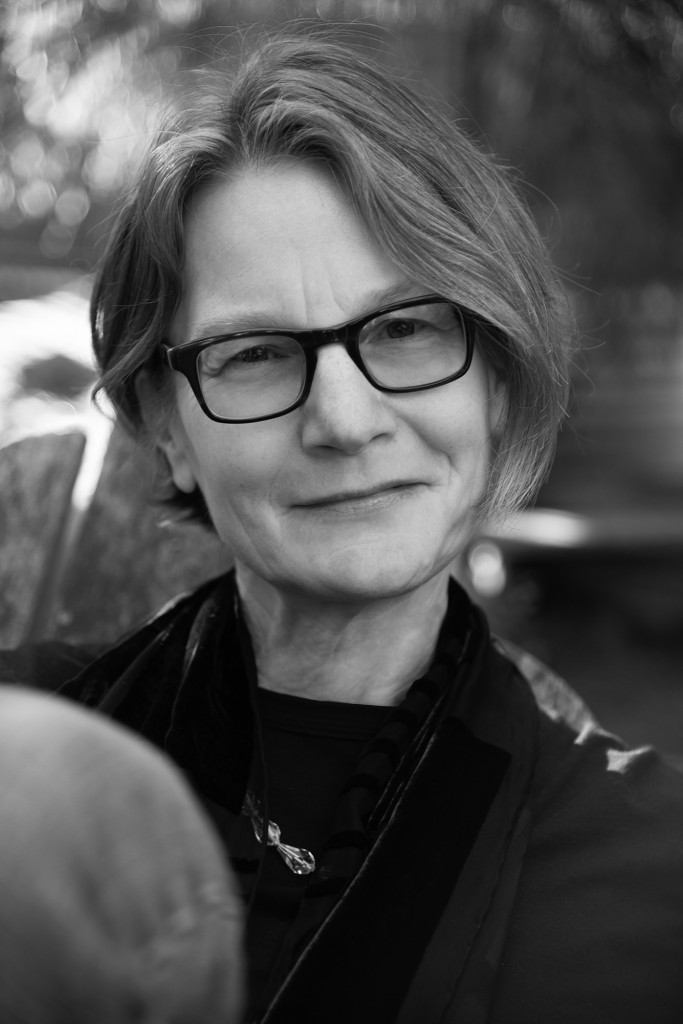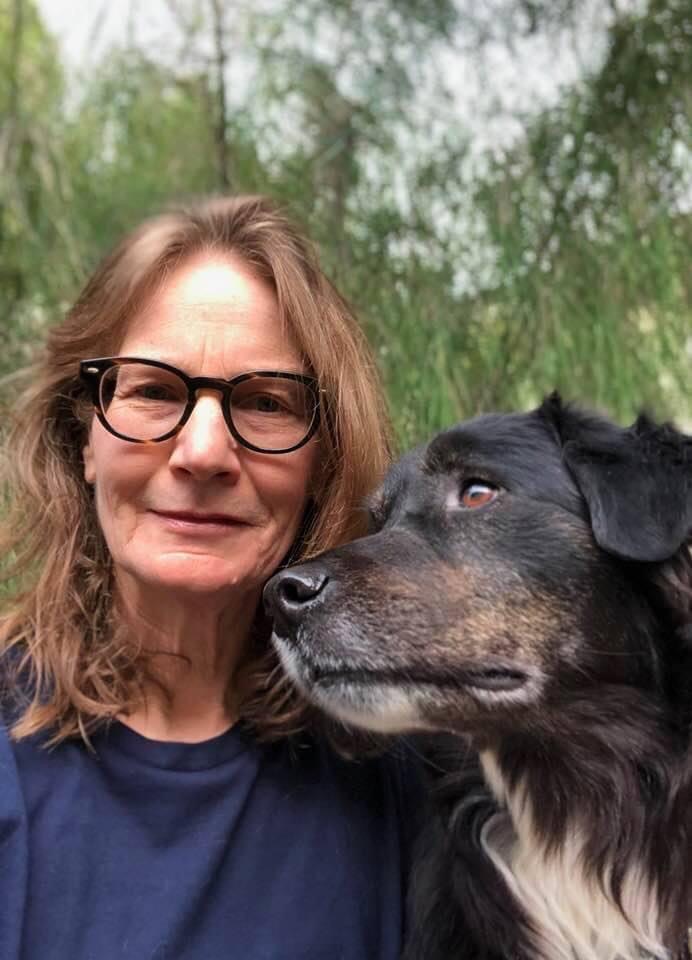
Linda Van Leuven, Ph.D.
Sociologist. Artist. Human.
A Traditional Bio
Linda Van Leuven, Ph.D. (“LVL”) is a sociologist, writer, and teacher of Awareness. She views sociology as a transformational science, and practices it as an art. A recipient of the Luckman Distinguished Teaching Award (TA) at UCLA, her educational approach has been branded by students as “the LVL Experience.”
LVL takes an ethnographic approach to Life, and has developed a corresponding methodology for appreciating Life’s revealing. Now in private practice, she brings Sociological mindfulness to everyday subjects through coaching and teaching classes on Gender, Sexuality, and Self from a bigger perspective — from a sense of integration and wholeness. All of which represents an on-going process of consciousness raising, which includes the Body.
She has developed this work into a new field, The Sociology of Awareness — bringing this perspective into many populations, with varying needs and interests: teaching classes on Gender, Race, and Class to Law Enforcement Personnel; developing a training talk on Creativity & Adaptability Thinking for a Fortune 500 Company; sharing how self & gender perception matters for women who have heart disease or have experienced Heart Attacks; and discussing the complex and intertwined relationships of Animals in Society, with members of Animal Control.
She also embraces complexity in her studies of social life and interaction, and has written articles about personalized service work, workplace sexualization, negotiating relational boundaries, the shifting suburban metropolis, and death. Her work has appeared in scholarly collections and urban style magazines, and includes her B&W photography. She likes to combine unusual materials — genres, artifacts, and ideas — to reframe the boundaries of conception. LVL takes this same approach in editing, and has been a Co-Editor of the journal, TRIVIA: Voices of Feminism. She lives in Long Beach, Ca., and shares the path with her Border Collie/Retriever mix, Maizie, and their cat, Maya.
A Less Traditional Bio: Behind the Scenes

“…the self is not a fortress, but rather a small open city.”
Erving Goffman, 1959
We all have a What Happened Story
When I was growing up, a question was posed to me:
“Were you behind the door when the brains were passed out?”
I was a serious kid, and quite literal — so figured I surely must have missed something key — some Brains, or some crucial teaching or awareness. I must have been absent from school on the day when they explained and talked about Life. You know, The Basics: How it all worked? Why it Mattered? and mostly, “What’s the Point?” Because in my young life, nothing I was told ever felt particularly real or true. This fostered a feeling that I didn’t belong — was alien — and also, that there must be hidden and buried treasure just behind the wall.
As I grew older, this general sense of displacement moved through specific topics: Gender, Sexuality, Spirituality, the Body — all foundational aspects of self; it even moved into areas of work, partnership, and health — because there are expectations and standardized ways of doing these, too. Whatever the topic, I was always a little off to the side, which is rather poetic in remembrance, but not so much as an experience. I wanted to know the Truth of Life — I was curious, and in great pain and despair; not simply because I was different, but because I felt separate from something fundamentally “Real.” I thought if I could just find that missing link, the part I thought I missed, I’d be ok, and could rest.
So I spent this life in study — reading, researching, experiencing — developing new ideas, theories, and teachings. Putting the pieces together in new ways. Releasing worn out assumptions and practices. More interested in how I thought, than what I thought.
“… if you want to change anything in yourself, you must change the process of thought that occasions the materialization of consciousness into different forms of matter and action. That is the way, the only way, to remold your life.”
Paramahansa Yogananda, Remolding Your Life, 1943 (original talk), 1995 (third printing), p. 11
Teaching
And a big part of this, and “About” me, is my Teaching and work with students. I started holding a big space for students to not only sit with the learning, but with the unlearning — and the experience of not knowing about subjects they were already supposed to know about; which in college and pretty much everywhere else is exactly the opposite posture to adopt or ever admit to. We like to fancy ourselves “experts” at things, and in Life — but what do we know? Is this always the best position to be in when learning or teaching?
So I began to cultivate this sense of unknowing as part of the curriculum I was teaching at UCLA.
Also, I wanted the students to have the best chance at learning in their very stressful lives, where much of the stress did not come from assignments, but from their relationships, the expectations of others, the stuff of daily living, and from so much unknown about their future.
So I drew from things that helped me: from my training as a competitive athlete, from my meditation practice and spiritual study, and from my grounding in Ethnography and other research methods/philosophies, notably Conversation Analysis, Symbolic Interactionism, Ethnomethodology, and Phenomenology; tho probably nothing aided me more on a very practical level, than my years working in Customer Service. And I combined all of this with the wisdom born of loss and tragedy, and from the sense of being an outsider — even as I stood in front of class, giving a lecture in the trappings of being an Insider.
All these experiences were my Course Resources, too, whether or not they were on the Syllabus. This is Key:
These Resources allowed me to be more Present to the Instructional Moment with the students — to show up and teach in a more holistic and dynamic way.
When Life’s Invitation struck, and the formal teaching ended, I began to search less, read less, and increasingly just be with whatever was becoming of me. This included a great dissolving of self, that worked its way through every aspect of my life; it was all up for review, and I was the lucky one who got to experience this from a wealth of study, reflection, and training. This helped me not to confuse the specifics of what was happening, with the process I was going through. It felt like how neuroscientist, Dr. Jill Bolte Taylor, described having a stroke: that she was suddenly able to study the brain from the inside. This was my experience, too, in regards to issues of Self: It was as if I had been dropped deep into the center of my life; that I was actually inside it, and occupying it in a new way. This vantage point and awareness was not simply academic, but experiential and expansive and calming. And yes, this is now a resource I bring with me, too.
“No problem can be solved by the same level of consciousness that created it.”
Albert Einstein
So I am sharing all of this on a section “About” me, because who I am is cumulative and evolving, and includes my experiences. All of which gets woven into how I think and approach Life, and what I have to offer others, personally and professionally. It is not separate from the accomplishments you can read about, above, in a more traditional Bio. And that is also what you should know about me — that everything is of value, even the sense that you don’t belong, or you missed out the day they explained how Life worked, or that the treasure is just behind the wall. And maybe some of my journey will feel familiar, and make things easier for you — this is something you should also know about me.
“The only thing you have to offer another human being, ever, is your own state of being.”
Ram Dass